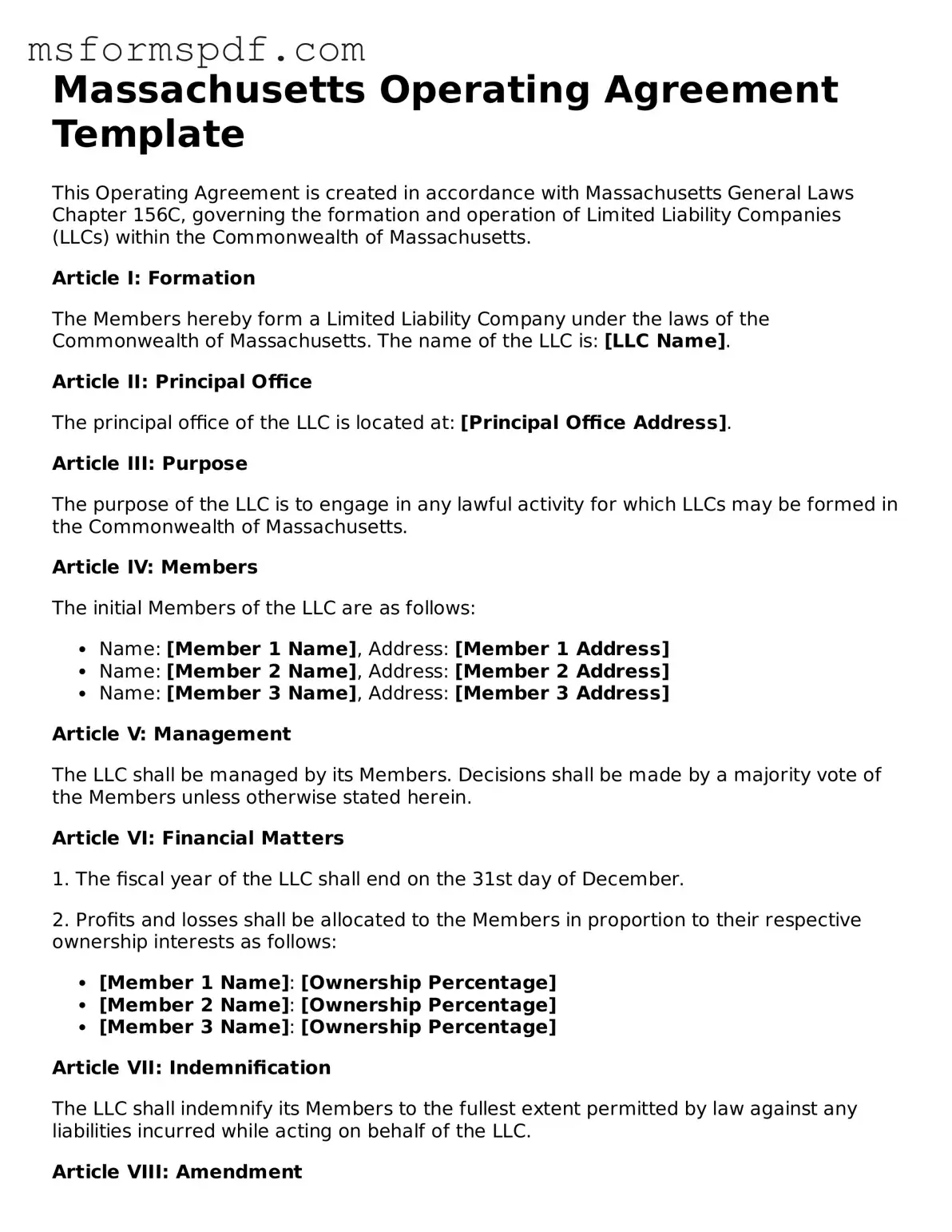Blank Massachusetts Operating Agreement Document
The Massachusetts Operating Agreement form is a legal document that outlines the management structure and operational procedures of a limited liability company (LLC) in Massachusetts. This agreement serves as a crucial framework for the members, detailing their rights, responsibilities, and the distribution of profits and losses. Understanding this form is essential for anyone looking to establish a compliant and well-organized LLC in the state.
Launch Editor Now

Blank Massachusetts Operating Agreement Document
Launch Editor Now

Launch Editor Now
or
➤ Operating Agreement PDF Form
Just a moment — finish the form
Fill out Operating Agreement digitally — no scanning, no printing.